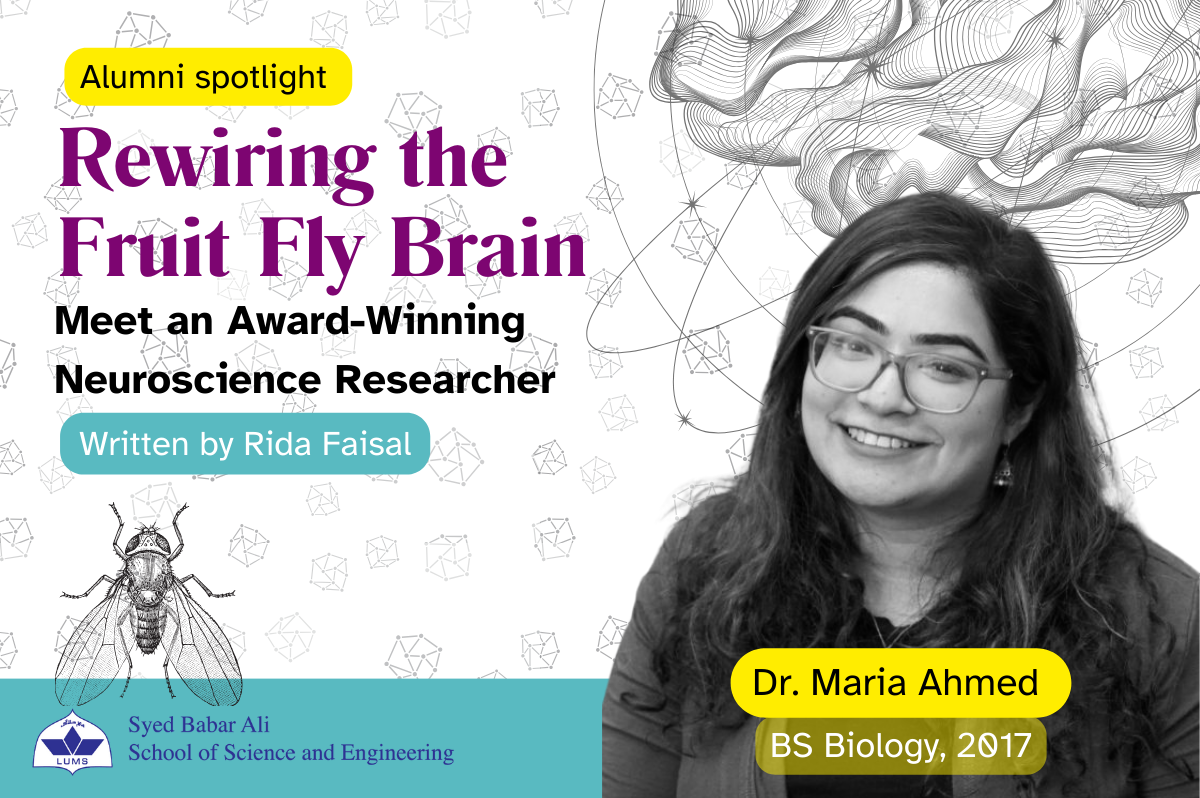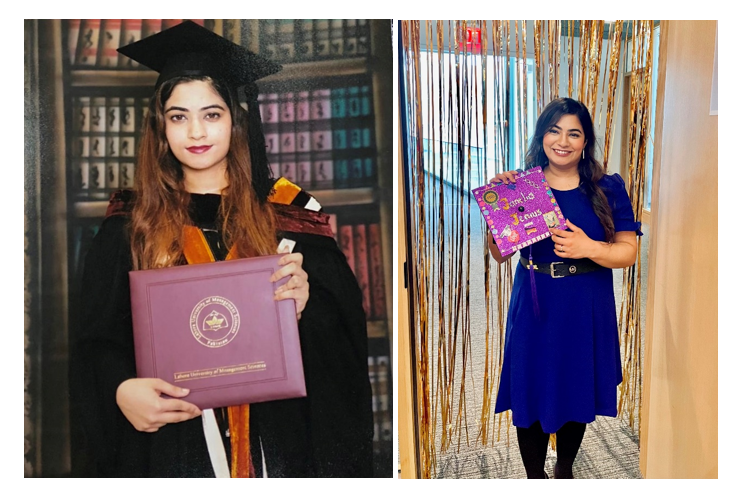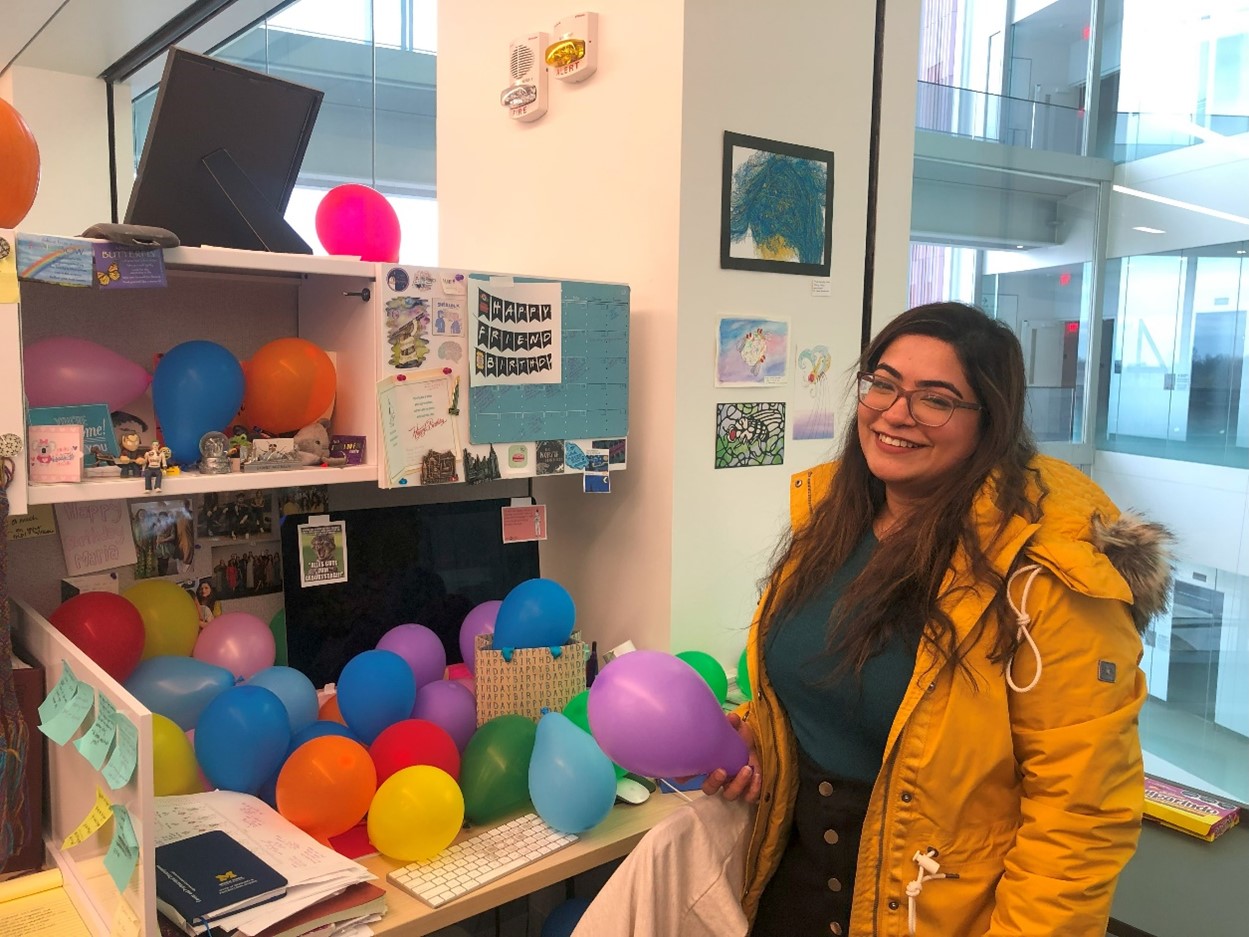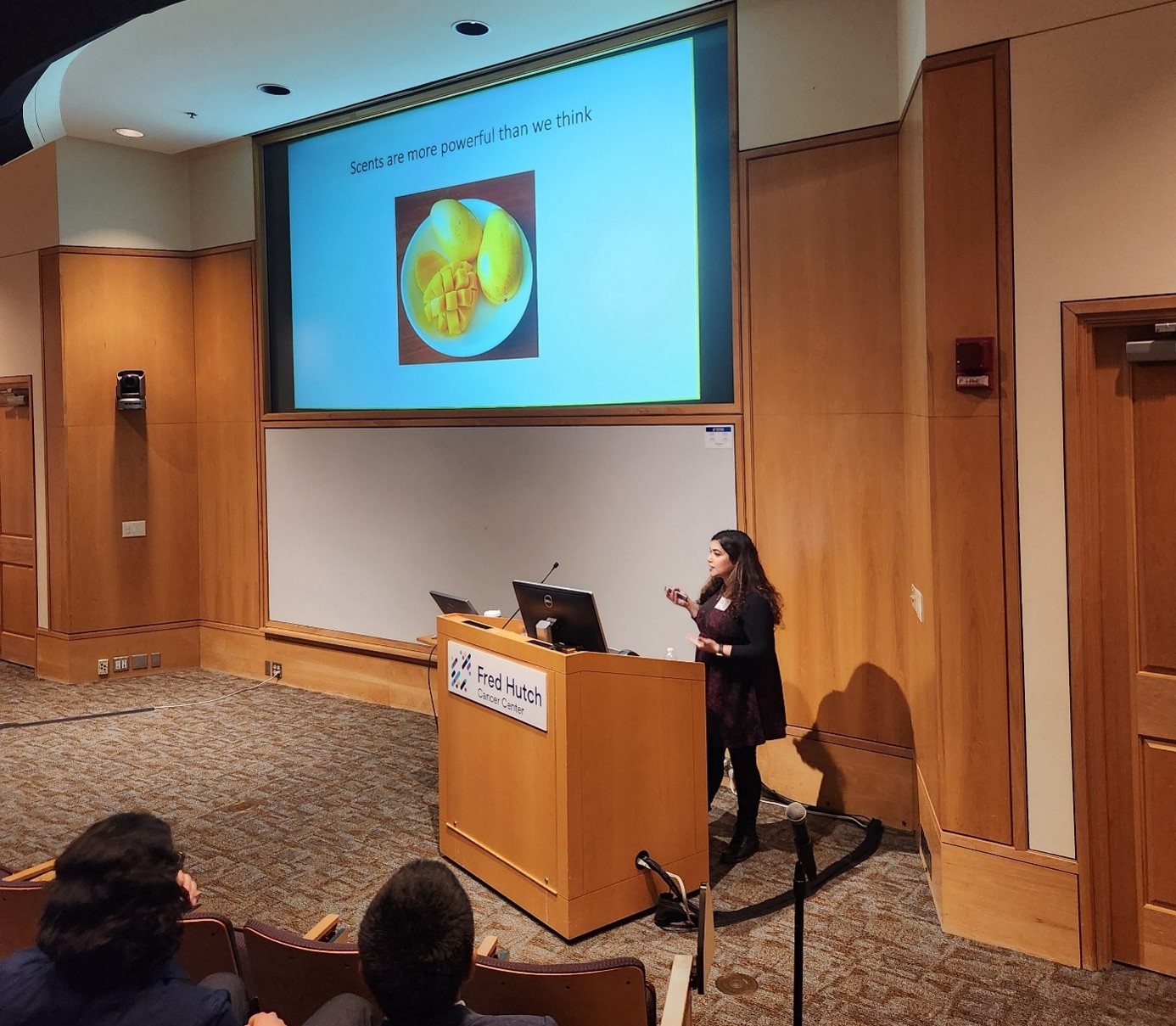
Rewiring the Fruit Fly Brain - Meet an Award-Winning Neuroscience Researcher
Dr. Maria Ahmed is a dedicated neuroscientist and alumna of the Syed Babar Ali School of Science and Engineering (SBASSE), who has recently completed her Ph.D. at the University of Michigan. This outstanding achievement has come to life after several years of Dr. Maria’s perseverance and curiosity within the field of developmental biology and, more specifically, sensory perception. Through her own passion and fierce support from her mentors, she is currently pursuing a postdoctoral position at Freie Universität, Berlin.

Right: Ph.D. defence celebration
Before narrowing down her research field, Dr. Maria shares how her journey at LUMS played a pivotal role in shaping her interests and goals. It was the SSE Core Curriculum that first exposed her to the field of computer science, and her experience coding a game in MATLAB was so enjoyable that she chose to pursue a minor in Computer Science in addition to her major in Biology during her undergraduate years.
Other impactful courses included Developmental Biology and Neuroscience. These courses not only deepened her understanding of brain development but also enabled her to explore computational biology research during her undergraduate studies. In her senior year, her commitment was further fueled by professors such as Dr. Muhammad Tariq and Dr. Saffee Ullah Chaudhary. Their encouragement was instrumental in her decision to pursue a Ph.D. and explore the unanswered questions within neuroscience.
She eventually decided to join the University of Michigan for a program in molecular, cellular, and developmental biology, exploring different lab rotations before finding a suitable fit in the related world of neuroscience.
Dr. Maria’s field dives deep into the development of neural circuits for sensing smell, using fruit flies to visualize how neurons are fired and connected.
She describes her Ph.D. research as quite challenging, something she would only be able to take on with support from her mentors at LUMS, whom she is still in touch with. She also remarks on how seeing her current supervisor, Dr. Josie Clowney’s drive, excitement, and passion about her work, was one of the reasons she decided to commit to her lab. This level of ambition, inspired by those around her, has rightfully yielded immensely valuable contributions.

Earlier this year, she was merited for her graduate work as one of only twelve recipients of the Harold M. Weintraub Graduate Student Award for Outstanding Achievement in the Biological Sciences, as well as the Rackham Predoctoral Fellowship Award, 2022-23.

Currently, Maria continues to tackle challenging questions in her postdoc at the Robin Hiesinger Lab at Freie Universität, Berlin. She is focused on understanding how the brain wires up for development and how neurons form functional circuits, and she also plans to initiate her own lab. Her future goal is to expand neuroscience in Pakistan, aiming to establish a basic neuroscience research center in Lahore, particularly to assist "women who find it harder to apply abroad for graduate studies due to societal pressure," as she shares.
Reflecting on her experiences, Maria notes that taking courses outside her major, like Computer Science and Psychology, broadened her interests and led to unexpected discoveries. Despite challenges during her Ph.D., she emphasizes the importance of staying interested and "letting yourself be driven by curiosity." Her eagerness to explore unknown questions and perseverance serve as an example for those seeking new experiences and fields.

